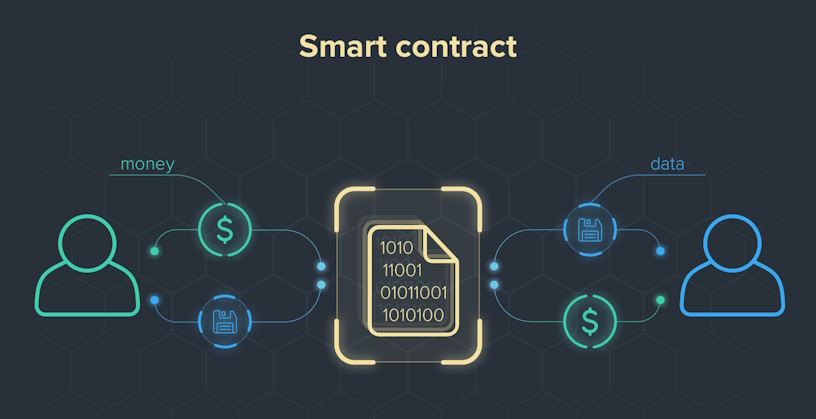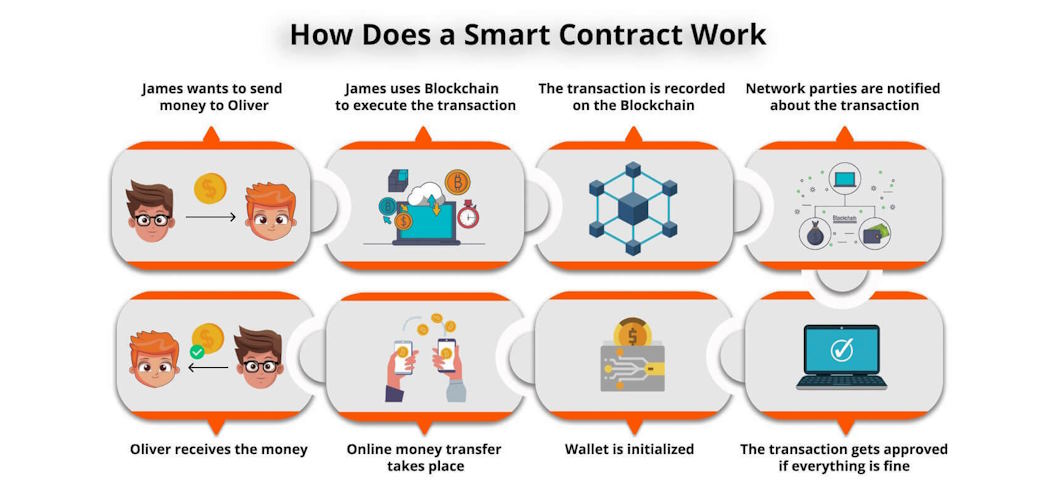
As the buzz around blockchain continues to reverberate across industries, smart contracts emerge as a focal point in the discourse on decentralized, tamper-resistant systems. To comprehend the full spectrum of this transformative technology, it is essential to unravel the synergy between smart contracts and blockchain. These self-executing contracts, enabled by code and securely embedded within the distributed ledger of blockchain, hold the potential to disrupt conventional business processes.
How Smart Contracts Work: Unveiling the Foundations
Blockchain as the Foundation:
At the heart of smart contracts lies the robust infrastructure of blockchain. Blockchain, a decentralized and distributed ledger, serves as the foundational technology empowering smart contracts. Its architecture is a chronological chain of blocks, each containing a list of transactions. This distributed nature ensures that no single entity has control, fostering a tamper-resistant environment. The key attributes of blockchain architecture—decentralization, consensus mechanisms, and cryptographic security—create the ideal substrate for the execution of smart contracts.
The twin pillars of immutability and transparency form the backbone of blockchain’s reliability. Once a block is added to the chain, it becomes immutable, resistant to alterations. This immutability guarantees the integrity of transactions and enhances the trustworthiness of smart contracts. Transparency, on the other hand, ensures that all participants in the network have visibility into the entire transaction history. This feature not only builds trust but also aligns seamlessly with the inherently transparent nature of smart contracts.

Coding and Execution:
Smart contracts, being self-executing pieces of code, demand a specific set of programming languages. Ethereum’s Solidity and RSK’s RSKsmart are notable examples, providing the tools to articulate the terms and conditions of contracts in code. This code is then deployed onto the blockchain, where it autonomously executes when predefined conditions are met.
Nodes, the individual devices connected to the blockchain network, play a pivotal role in executing smart contracts. These nodes validate and confirm the transactions within the contract, ensuring consensus across the decentralized network. The collaborative efforts of nodes not only verify the legitimacy of the contract but also contribute to the security and efficiency that define the transformative potential of smart contracts in modern business landscapes.
Advantages of Smart Contracts: Driving Business Evolution
Efficiency and Automation:
One of the hallmark benefits of smart contracts lies in their ability to streamline business processes with unprecedented efficiency. By eliminating intermediaries, these self-executing contracts bypass the delays and complexities associated with traditional systems. The result is a swift and automated execution of agreements, significantly reducing the time required for transaction processing. Smart contracts, as digital automatons, usher in a new era where contractual obligations are met seamlessly, providing a clear path to efficiency in various sectors.

Security and Trust:
Smart contracts operate within the secure confines of blockchain, inheriting its immutable and transparent nature. Immutability ensures that once a contract is established, its terms remain unalterable, creating a tamper-resistant environment. This, combined with the transparency afforded by blockchain, enhances trust among parties involved. The result is a drastic reduction in fraud and errors, as all transactions are permanently recorded and verifiable. Businesses leveraging smart contracts can thus operate with a heightened sense of security and confidence in their digital transactions.
Cost Savings:
The adoption of smart contracts translates directly into cost savings for businesses. The elimination of intermediaries not only expedites processes but also reduces associated fees. Lower transaction costs become a tangible advantage, especially in financial transactions and supply chain management. Additionally, the inherent transparency and automation minimize the need for legal interventions, further decreasing operational expenses. As businesses seek to optimize their bottom line, the cost-saving attributes of smart contracts position them as a strategic asset in the pursuit of financial efficiency and sustainability.



